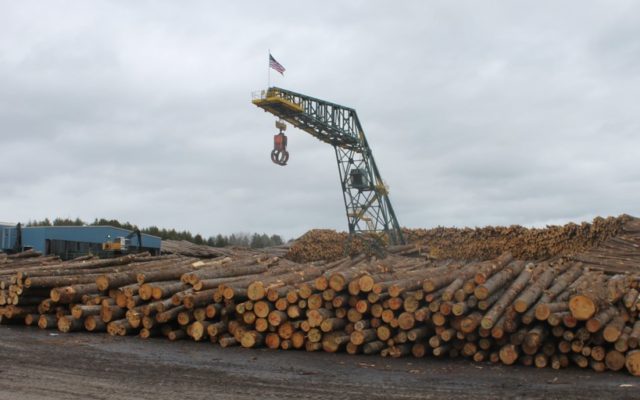
Watchdog finds no proof that LePage punished sawmill owners who criticized him
AUGUSTA — A legislative watchdog found “no evidence” that Gov. Paul LePage’s administration diverted public timber from Maine millowners because they criticized the governor, though there was “very little documentation” to back that finding.
Though the finding could be interpreted as an exoneration the governor, a defiant LePage appeared before a legislative oversight panel on Monday and called Sen. Tom Saviello, R-Wilton, who raised the controversy publicly, “the most repugnant human being I’ve ever seen” before leaving the hearing room after being ruled out of order.
A report from the Office of Program Evaluation and Government Accountability found no documentation to contradict the administration’s claim that Maine State Forester Doug Denico — not the Republican governor — made a February decision to divert timber from state lands.
That drew the attention of lawmakers because the company that lost the wood was the Dover-Foxcroft-based Pleasant River Lumber. It’s owned by Jason and Chris Brochu, brothers who support tariffs on Canadian softwood lumber imports that the governor opposes and hammered LePage for a “Canada-first” trade policy in a Bangor Daily News OpEd last year.
The report was ordered by the Legislature’s Government Oversight Committee in March after the governor angrily denied trying to punish the Brochus before another legislative panel. He and Denico said the decision was made to bail out a Stratton mill that was close to closure, although representatives of that mill told Maine Public that they didn’t ask for the wood.
The report released Monday largely substantiated that account. OPEGA staff found it “unlikely” that the tariff battle played into the decision, because Pleasant River Lumber did business with the state between the Brochus’ OpEd and the February diversion, and because another buyer involved in the dispute did business with the state as well.
The watchdog office reviewed thousands of pages of emails and interviewed LePage, Denico and Pleasant River Lumber officials for the report. But it found little documentation to illuminate the February decision to divert wood, largely attributing that to the handshake deals that have traditionally dominated transactions between millowners and the state.
In testimony, LePage concurred with that finding. But he criticized Saviello repeatedly for raising the issue in his role as a member of the Agriculture, Conservation and Forestry Committee. At one point, the governor asked for an apology from that committee. He concluded by calling Saviello “repugnant.”
Sen. Roger Katz, R-Augusta, the co-chairman of the committee, ruled LePage out of order, after which the Republican governor immediately left the hearing room with aides. Katz said later that the committee chairs would send a letter to LePage asking him to apologize to Saviello.
“I will not tolerate being bullied like everybody else,” Saviello said. “That’s totally unacceptable and unnecessary. I’m glad he walked out of the room.”
The report recommends “a more formalized process and procedure to help guide decision-making and communications surrounding the sale of timber from Public Lands, particularly when there are changes to agreements made with wood buyers.”
The committee will return to the issue with a public hearing in late September. It voted unanimously Monday to invite several state officials and members of the timber industry to that meeting. The committee also voted to request documents from the LePage administration.